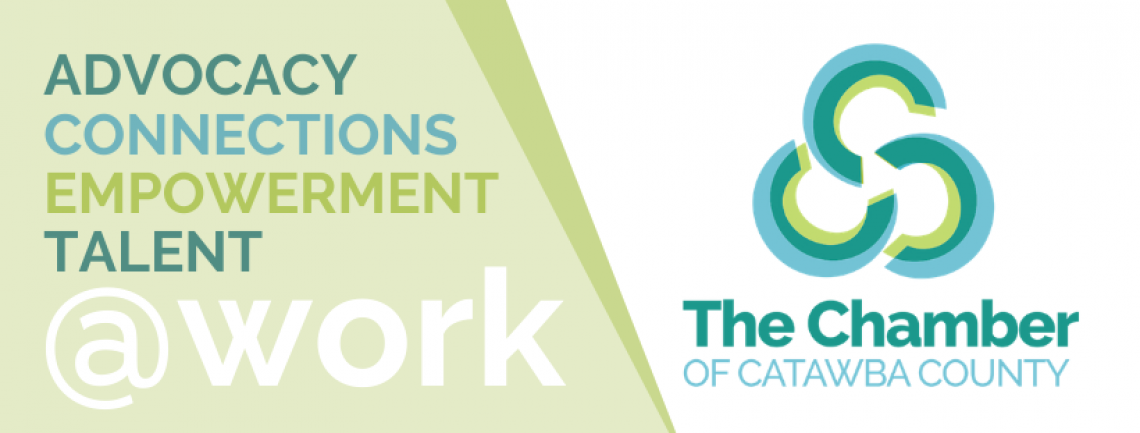 At the Chamber of Catawba County, we aim to serve as the strong pro-business voice, advocating for free enterprise and working alongside local government to ensure a friendly business environment that is needed for all business in Catawba County to grow and sustain.
At the Chamber of Catawba County, we aim to serve as the strong pro-business voice, advocating for free enterprise and working alongside local government to ensure a friendly business environment that is needed for all business in Catawba County to grow and sustain.
Two major issues impacting business repeatedly rise to the surface of our impact surveys with our partners: the lack of available & qualified talent to fill job demand and rising employee-related costs including health insurance premiums. Many factors are at play as to the cause of each of these critical issues businesses are experiencing. However, recent data has shown that both issues are made worse by the coverage gap. The coverage gap consists of individuals who earn too much to qualify for Medicaid but too little to qualify for a subsidy on the health insurance marketplace.
Statewide 76% of those who are in the coverage gap are working; of the remaining 24%, many either have a medical disability or are sitting on the sidelines of the workforce because they’ve made the decision that it is not worth giving up their health insurance to take a job. In Catawba County, 14.2% workers do not have any health care coverage.
One solution to close the coverage gap that has been adopted by 38 states and now under serious consideration among the North Carolina General Assembly is by expanding Medicaid.
The Chamber of Catawba County has not taken a position on this issue; however, our pro-business public policy standards are directed by our Guiding Principles adopted by our Board of Directors. One of these guiding principles states, “The Chamber of Catawba County supports policies that make health insurance affordable and accessible, and create insurance options, especially for small businesses”. With this in mind, we are committed to learning about the implications this proposed solution has for business, and therefore, we’re keeping an open ear to all possible remedies of this pain point.
Recently our Advocacy Taskforce heard a presentation on the business case for Medicaid expansion from Erica Palmer Smith, Executive Director for the 152-member statewide Care4Carolina coalition. This coalition was formed to observe the impact of Medicaid expansion in other states and the potential impacts that this policy can have on North Carolina. Palmer Smith reminded the taskforce that those of us who are insured currently pay for the uninsured through higher health insurance rates and cost-shifting to subsidize the charitable care that our hospitals provide. She presented data which showed that the total workforce grew in states that have already made the decision to expand Medicaid, which netted more available workers for business and industry. Additionally, we learned that North Carolinians are already paying for Medicaid expansion in the 38 other states that have expanded Medicaid through our federal tax dollars.
One major objection that is raised by most is the significant cost implications we stand to incur as a state if expansion would occur. Palmer Smith explained that North Carolina taxpayers will bear no additional burden as the federal government will pay 90% of the cost of expansion and hospitals will cover the remaining 10%. The expense for our hospital partners will incur will be less than they currently are having to spend on uncompensated care for those who are currently uninsured, therefore, ultimately their burden will significantly decrease. Furthermore, we learned that as a part of the American Rescue Plan, the federal government will provide states with a new incentive: a two-year, five percent increase in the federal match rate for Medicaid. For North Carolina, that would mean an influx of around $1.7 billion over the next two years. Official estimates put the cost of closing the coverage gap through Medicaid at $700 million over that span, which would leave $1 billion for the state to invest in other worthy endeavors.
Proponents say expanding Medicaid would be the comprehensive solution, providing coverage to an estimated 600,000 North Carolinians, a third of which have children under the age of 18, and including approximately 9,900 people in Catawba County, who are currently uninsured. They also state that it would support and stimulate small businesses and enable them to afford coverage for themselves and offer insurance to their employees. If North Carolina experiences the same benefits as seen in other expansion states, employer-sponsored health insurance premiums can see rate decreases, in some cases of up to 25% and the number of available workers will increase. Finally, they say that a healthy workforce is a more productive workforce. Those who live with untreated or chronic conditions will have access to the care needed to manage their conditions and remain in the workforce.
Several weeks ago, a bill was introduced by a group of Senate Republicans led by NC Senate President Pro Temp Phil Berger (R-Eden). When rolling out the new bill that would close the coverage gap, Berger stated, “We need coverage in North Carolina for the working poor … without creating problems for the state budget.” Medicaid expansion, he explained, “has evolved to the point that it is good state fiscal policy.” The bill passed the Senate by a vote of 44-1 and was supported by Catawba County Senator Dean Proctor.
As the process unfolds and the House considers Medicaid expansion, the Catawba County Chamber will be listening – both to the conversation at the General Assembly and right here at home. As always, I appreciate the opportunity to hear from local business leaders around this issue or any others, therefore, contact me at lkeisler@catawbachamber.org.



